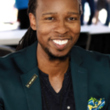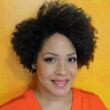Disability visibility: first-person stories from the Twenty-first century
Description
More Details
9781984899439
Table of Contents
From the Book
Similar Titles From NoveList
Published Reviews
Booklist Review
This collection of essays is a manifesto generated by passionate, determined individuals with disabilities who are trying to survive and thrive in our ableist society. Editor Wong is the director of the Disability Visibility Project, an online community dedicated to supporting and amplifying disability culture. Tired of being underrepresented in the media and marginalized by society, 37 activists have documented the social, legal, ethical, and medical challenges they face in their struggles for equitable treatment, recognition, and acceptance. The contributors include a pediatric neurologist, an astronomer, community activists, civil rights lawyers, artists and performers, and writers and journalists. Their articles encompass political statements, personal histories, poetry, dictated accounts, and even a eulogy. They document myriad incidents of ingrained and systemic prejudice and injustice. Brutally honest and sometimes difficult to read, these compelling testimonials tell of casual cruelty, isolation, condescending treatment, pity, discrimination, physical abuse, and sexual exploitation. This is a wake-up call and a justified demand for greater visibility for all members of our communities, and it deserves a wide audience.
Library Journal Review
In the powerful introduction to this collection, Wong, founder of the Disability Visibility Project and host of the related podcast Disability Visibility, reminds us that disability is not a monolith and that disability rights are civil rights. As she does on her podcast, #CripTheVote, Wong lets people speak for themselves. Standout essays include those by Jen Deerinwater on disparities in health care among Indigenous people; Diana Cejas on the vulnerability of being a patient in the hospital where she works; A.H. Reaume on the myth of independence and the need for more representation in literature; and Ellen Samuels on "crip time," or not living life in normative stages. Alongside prominent figures, such as Maysoon Zayid, Keah Brown, and Haben Girma, readers are introduced to others who are sharing their experiences for the first time. The collection sheds insight on topics that are rarely explored in mainstream works, including the difficulties of finding adaptive clothing, the dangerous mindset of the cure mentality, and the high rates of disability among LGBTQ people. Overall, Wong urges people with disabilities to expect more and deserve more. VERDICT Bringing varied voices to the forefront, this collection is an ideal starting ground for finding community and sparking further reading.--Stephanie Sendaula, Library Journal
Kirkus Book Review
A self-described "disabled activist" brings together diverse perspectives in an anthology to be published on the 30th anniversary of the Americans With Disabilities Act. Wong, the founder and director of the Disability Visibility Project, makes it clear that she never intended the book to serve as a "best of" work or a quasi-academic syllabus for "Disability 101." As she writes, "I want to center the wisdom of disabled people and welcome others in, rather than asking for permission or acknowledgment." The editor notes that, according to the most recent U.S. census, 20% of citizens in the country live with a disability. The book is divided into four sections. "Being" captures writings that explain the daily challenges of wrestling with a disability, from blindness and deafness to autism, bipolar personality, generalized mental illness, fibromyalgia, cerebral palsy, spina bifida, and others. In "Becoming," the essays focus less on defining a specific disability and more on how the contributors have figured out how to follow a life-affirming path. "Doing" displays the accomplishments--many of them quite remarkable--that affect not only the anthologists, but also society at large. The final section, "Connecting," illuminates how those labeled as disabled find ways to transcend isolation. Some of the essays are original, but many have been previously published in newspapers, magazines, scholarly journals, and elsewhere. Readers will recognize relatively common scenes, such as Haben Girma's navigating with a guide dog ("Guide Dogs Don't Lead Blind People. We Wander as One."), while other contributions ably demonstrate that not all disabilities are apparent. Recognizing that "it is impossible to capture the full expanse of the disability experience in one book," the editor offers a robust section of further reading that encompasses not just nonfiction, but also fiction, poetry, podcasts, and other forms of expression. Wong's discerning selections, bolstered by the activism that shines through, will educate and inspire readers. Copyright (c) Kirkus Reviews, used with permission.
Booklist Reviews
This collection of essays is a manifesto generated by passionate, determined individuals with disabilities who are trying to survive and thrive in our ableist society. Editor Wong is the director of the Disability Visibility Project, an online community dedicated to supporting and amplifying disability culture. Tired of being underrepresented in the media and marginalized by society, 37 activists have documented the social, legal, ethical, and medical challenges they face in their struggles for equitable treatment, recognition, and acceptance. The contributors include a pediatric neurologist, an astronomer, community activists, civil rights lawyers, artists and performers, and writers and journalists. Their articles encompass political statements, personal histories, poetry, dictated accounts, and even a eulogy. They document myriad incidents of ingrained and systemic prejudice and injustice. Brutally honest and sometimes difficult to read, these compelling testimonials tell of casual cruelty, isolation, condescending treatment, pity, discrimination, physical abuse, and sexual exploitation. This is a wake-up call and a justified demand for greater visibility for all members of our communities, and it deserves a wide audience. Copyright 2020 Booklist Reviews.
Library Journal Reviews
In the powerful introduction to this collection, Wong, founder of the Disability Visibility Project and host of the related podcast Disability Visibility, reminds us that disability is not a monolith and that disability rights are civil rights. As she does on her podcast, #CripTheVote, Wong lets people speak for themselves. Standout essays include those by Jen Deerinwater on disparities in health care among Indigenous people; Diana Cejas on the vulnerability of being a patient in the hospital where she works; A.H. Reaume on the myth of independence and the need for more representation in literature; and Ellen Samuels on "crip time," or not living life in normative stages. Alongside prominent figures, such as Maysoon Zayid, Keah Brown, and Haben Girma, readers are introduced to others who are sharing their experiences for the first time. The collection sheds insight on topics that are rarely explored in mainstream works, including the difficulties of finding adaptive clothing, the dangerous mindset of the cure mentality, and the high rates of disability among LGBTQ people. Overall, Wong urges people with disabilities to expect more and deserve more. VERDICT Bringing varied voices to the forefront, this collection is an ideal starting ground for finding community and sparking further reading.—Stephanie Sendaula, Library Journal
Copyright 2020 Library Journal.

































